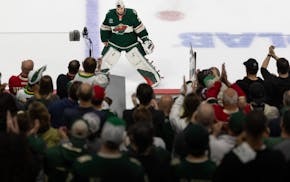Watching the Timberwolves lose to the Celtics on Thursday, I was reminded of a slew of text messages from friends about the embattled coach.
The texts fell into two paraphrased categories:
1. "Are they going to fire him?"
2. "They have to fire him."
Timberwolves coach Chris Finch is running an underachieving team. The Wolves, fresh off the Western Conference finals, are one game over .500 on Jan. 3 following their 118-115 loss to Boston.
This edition of the Wolves has struggled to perform as well as they did defensively a year ago and has struggled to integrate new players offensively.
There was great faith in the organization that Finch could cure all ills. The organization seems to be maintaining that faith; the fan base does not.
Back to those angry and questioning text messages:
They were about Vikings coach Kevin O'Connell at the end of the 2023 season.
And I'm sure they have been deleted.
O'Connell should win the 2024 NFL Coach of the Year award. He has performed miracles with quarterback Sam Darnold and a thrown-together defense, and on Sunday he has a chance to secure the No. 1 seed in the NFC playoffs.
A year ago, O'Connell was the coach of a 7-10 team. The people who texted me about his future are intelligent, experienced fans.
So when Timberwolves fans decide to blame Finch for all of the Wolves' current woes and suggest that a change would do the franchise good, I tend to remember O'Connell.
O'Connell and Finch are highly regarded as coaches and humans within their organizations and leagues. Both are experienced. Both relate well to players and have built a locker room culture that is welcoming and productive. Both have built strong staffs. Both work well with upper management and ownership.
O'Connell survived his speed bump and now might be the ideal NFL coach.
It might be unwise to assume Finch's future will look any different.
Twice, Wolves President of Basketball Operations Tim Connelly has made Finch's job much more difficult in the short run in the hope that a revamped roster and playing style would pay future dividends.
In the summer of 2022, Connelly traded half of his assets for Rudy Gobert and asked Finch to piece together a winning team. That led to a playoff run a year and a half later.
Just before training camp started in 2024, Connelly traded Karl-Anthony Towns for Julius Randle and Donte DiVincenzo. The result: A defense that played poorly early and an offense that still looks disjointed when Anthony Edwards and Randle play together.
Fan angst seems to center on Finch's usage of timeouts and substitutions.
Trust me: Those are not the most important parts of his job.
His job is to make this trade work and to have this team playing well enough to secure a top-six seed and be capable of winning playoff series in the spring. Calling a timeout earlier or later than you like is not going to alter this team's path.
His job will continue to be difficult until Edwards and Randle learn to play well off each other and until Edwards reasserts himself as a dominant offensive force — which he is not right now.
Thursday afternoon, I asked Finch if he has been frustrated.
"You're frustrated when you go through periods where you know you can play a little better," he said. "But this is a completely different team than it was a year ago. Somebody said it today: Sometimes you've got to let the cake bake.
"Thirty games in, we know it's been a process. It was a process when Rudy first got here. We feel, internally, a lot of similar kinds of frustrations that we felt at that point in time. … We just feel like we gotta keep trying, and working to figure it out."
Finch is a quality coach who fits the organization and the situation. He can also handle the pressure of the job without letting it affect the way he does the job.
As was the case with O'Connell, the wise move is to give the man time to bake the cake.
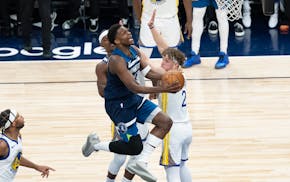
Souhan: Pondering Ant, whose injuries are no worry but whose shooting is a large concern
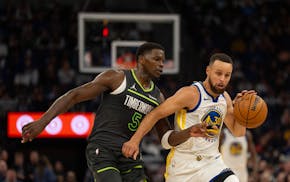
Souhan: Story lines aplenty when Wolves, Warriors clash
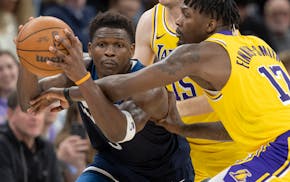
Souhan: Wolves thrive even when Ant struggles offensively
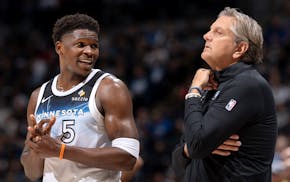
Souhan: 'In Finchy we trust' a true calling card for the Wolves
